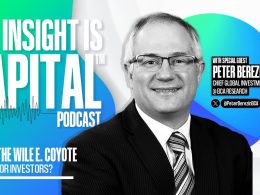by David Zahn, CFA, FRM, Franklin Templeton Investments
The Conservative victory in the UK General Election should bring some relief for UK markets, according to our Head of European Fixed Income, David Zahn. But he warns investors’ attention is likely to turn quickly to how the new government can really “get Brexit done”.
Markets are likely to see the Conservative victory in the UK General Election as the most positive outcome.
Although it was considered the most likely result in the run-up to the poll, we’d expect markets to react favourably, with gilts yields likely to fall and the pound likely to strengthen. We think risk assets such as corporate bonds will probably rally, too.
The Conservative manifesto centred on “getting Brexit done”, so we’d anticipate a rapid move to ratify Prime Minister Boris Johnson’s EU withdrawal agreement bill. If that’s successful, the United Kingdom would leave the European Union on January 31, 2020.
Markets, keen to see an end to Brexit uncertainty, are likely to respond positively in the short term.
However, a market relief at a Conservative victory may be quite short-lived as investors pivot quickly to think about what’s next, particularly with Brexit.
Once the EU withdrawal agreement passes Parliament, the United Kingdom will enter a period of negotiations on a future trade agreement. That negotiation process can last up to 11 months, which doesn’t give much time for the complex discussions required. We don’t think the EU negotiators will be as amenable as they were when agreeing to the withdrawal agreement.
There are a lot of likely sticking points in the discussions, with fishing rights being potentially tricky to resolve. There will be some room for negotiation, but we think talks will likely be robust.
If the UK government wants to extend the negotiation period, it needs to make a request by the summer. That really compresses the timetable to just four or five months in which to calculate whether there is a viable trade deal.
If there are no signs of early breakthroughs, we’d expect the markets to start wondering whether a damaging no-deal Brexit is back on the cards. Markets are likely to start reflecting more uncertainty if there are no signs of progress by the start of the summer.
To get insights from Franklin Templeton delivered to your inbox, subscribe to the Beyond Bulls & Bears blog.
For timely investing tidbits, follow us on Twitter @FTI_Global and on LinkedIn.
Important Legal Information
The comments, opinions and analyses expressed herein are for informational purposes only and should not be considered individual investment advice or recommendations to invest in any security or to adopt any investment strategy. Because market and economic conditions are subject to rapid change, comments, opinions and analyses are rendered as of the date of the posting and may change without notice. The material is not intended as a complete analysis of every material fact regarding any country, region, market, industry, investment or strategy.
Data from third-party sources may have been used in the preparation of this material and Franklin Templeton (“FT”) has not independently verified, validated or audited such data. FT accepts no liability whatsoever for any loss arising from use of this information and reliance upon the comments, opinions and analyses in the material is at the sole discretion of the user. Products, services and information may not be available in all jurisdictions and are offered by FT affiliates and/or their distributors as local laws and regulations permit. Please consult your own professional adviser for further information on availability of products and services in your jurisdiction.
CFA® and Chartered Financial Analyst® are trademarks owned by CFA Institute.
What Are the Risks?
All investments involve risks, including possible loss of principal. The value of investments can go down as well as up, and investors may not get back the full amount invested. Bond prices generally move in the opposite direction of interest rates. Thus, as prices of bonds in an investment portfolio adjust to a rise in interest rates, the value of the portfolio may decline. Investments in foreign securities involve special risks including currency fluctuations, economic instability and political developments.
This post was first published at the official blog of Franklin Templeton Investments.















